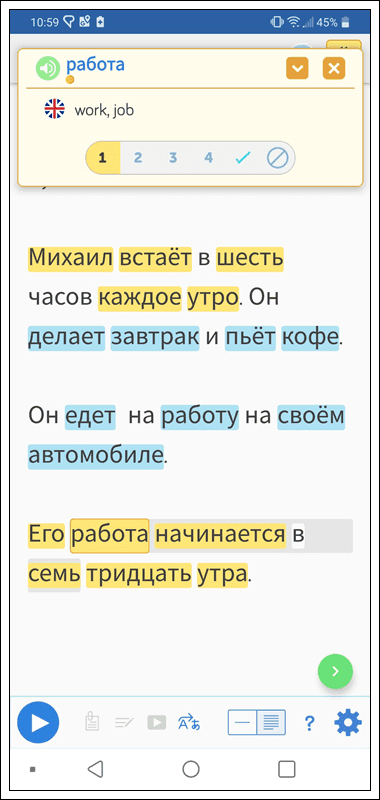How Long Does it Take to Learn Russian
Hi everyone! My name is Vladimir and I am a native Russian speaker. Today I’m going to give you an idea of how much time you (probably) need to learn the Russian language. Before I begin, I’d like to give you a bit of background about myself. My whole life has been about learning new languages. I was born in a Russian speaking community in Ukraine, and studied Russian in primary school. I was also learning English too. Later on in life, after I got married, my wife suggested a move to Poland (where she was born). Since the move, I am now fluent in Polish 🙂
So how long does it take to learn Russian? First off, I think that depends on how motivated you are and what kind of goals you’d like to achieve. For example, do you want to know the basics and converse on a day-to-day level or do you want to reach a point where you can conduct business in Russian and read the newspaper? If it’s the latter, that means it will take you longer to learn Russian.
Another important factor when it comes to learning Russian (or any other language) is passion. The more passionate you are, the more you’re interested in the language, the faster you’ll learn.
Below, I’ve written an approximate timeline on how long it should take you to learn Russian on your own.
Elementary proficiency
The basics of Russian can be learned within a few months (if you’re studying around an hour a day). I recommend starting with simple lessons and learning the most common Russian vocabulary. I think it’s easier to memorize new words in context rather than reading them one by one. LingQ’s Russian Mini-Stories are a great way to start studying Russian because these stories are simple to read, contain audio, and also contain the common vocabulary.
Limited working proficiency
At this level, you should be able to understand basic everyday conversation and be able to talk about a limited range of topics. This can level can be reached within 1-2 years or about 400-600 hours of active learning. At this point, you should be able to understand the main parts of podcasts, TV shows (you’ll still need Russian subtitles) and other content.
Full professional proficiency
This level is a bit of a leap from the previous one and will probably take a few years to reach. If you’re goal is to work or live in Russia, you’ll most likely need full professional proficiency. On average, even for very motivated learners, it takes about 3-4 years to reach this level. At this stage, you should be able to read Russian news, articles and books, listen to podcasts, watch Russian television and communicate with other native speakers comfortably.
Native or bilingual proficiency
The best way to reach this level is to move to Russia and immerse yourself in the language for most of your day. In my opinion, sounding like a native Russian speaker should take about 5 years (if you’ve been studying daily).
I believe that once you start turning your Russian studies into a daily habit, that’s when you’ll start to pick up momentum and achieve your goals. As I mentioned earlier, motivation is one of the most important factors when it comes to being able to learn a new language. Even polyglot Steve Kaufmann agrees.
I recommend finding material you enjoy. Even though the early stages will be challenging, once you understand the Russian alphabet, try and start reading things that are interesting to you. You’ll struggle but that’s natural. The more you read and listen to content you love, you’ll start to make a breakthrough.
Where to find Russian content you can enjoy
The easiest way to organize, read, and listen to your favorite Russian content is using LingQ.
LingQ comes with 1000s of hours of great content that makes reading and listening easier. Below is a preview of the Russian Mini-Stories:

Another great feature of LingQ is the ability to import your own content and create your own lessons. That means you can study Russian using your favorite YouTube videos, blogs, TV shows, and more. For more information on how to import Russian content into LingQ, please check out this post.
Yes, Russian is one of the more difficult languages but millions of people have been able to learn it and so can you. Stay motivated, be patient, and reward yourself every time you achieve a goal. Good luck!


